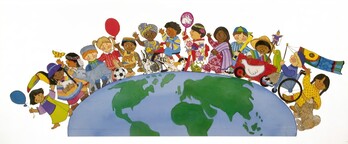 There was a question on Twitter recently that asked what authors thought was the most important thing to think about when world building. The Tweeter listed a few considerations, amongst which was the word “culture”. I Tweeted a reply to point out that culture wasn’t a single thing. It was a number of related things. That exchange of Tweets led to this blog. Loosely termed, culture could be described as “the way things are done around here”. But that does oversimplify things a lot.  To think of culture as a single thing is like thinking of car just in terms of its exterior shape. It may look nice, but without an engine, gearbox, wheels, etc the car is nothing more than a pretty shape that serves no purpose. A working car is a “system” - and so is a culture. My training in cultural issues came while I was working for a living in business and at that time many businesses were struggling to change their cultures from old fashioned, top down, target driven, tightly controlled workplaces to places where the employees had greater input which, in turn, resulted in greater job satisfaction and hence to greater productivity. Such cultural change is not easy to bring about. Managers in those businesses often thought that such a change robbed them of their power and status, so they opposed it. They couldn’t do so openly, but they became experts at undermining change without revealing themselves. So, who would secretly oppose change in your fantasy world – and why? 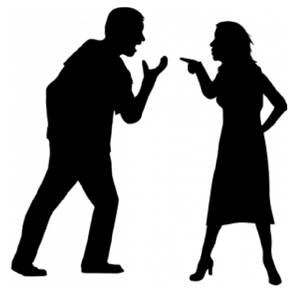 Trades unions also opposed such change, but more openly, because they wanted a workplace that involved conflict as conflict formed their raison d’etre. A happy workplace is one where conflict is rare, so the unions have little part to play, so they don’t wield any power. Finally, the employees themselves feared change, because it brought uncertainty. This was especially true in businesses with a previously bad reputation for employee relations, because there was little or no trust in authority figures. A colleague of mine, with a PhD in organisational change, pointed out that “if you can’t change the people, you have to change the people”. In other words, there may be a few casualties along the way as the people who resist change are quietly shown the door to make room for people with more open minds. But that was business. What has that to do with “world building”? 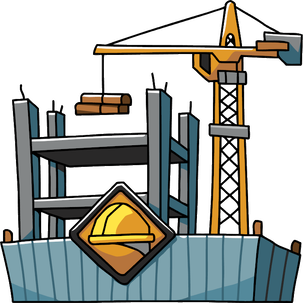 It isn’t just fantasy authors who have to consider culture. All characters in all novels exist within a culture. Some of these are easy for us to relate to, because they are familiar, while others may not be. But if you get the culture right for your story, it will make your character’s conflicts easier to understand. This is especially so if they are taken out of their own, comfortable culture and placed in one where they feel like an alien. Just going to a different town can make some people feel like that, so imagine what it feels like for someone going to a country on the far side of the world - or the far side of the galaxy. Understanding the elements that make up a culture allows the world builder to build something that is believable. The granddaddy of fantasy, Tolkien, got this right (mainly) with his Lord of the Rings trilogy and authors who have modelled themselves on Tolkien’s style tend to get the culture of their worlds right as well. 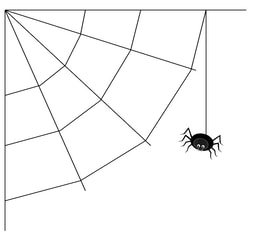 Experts on culture talk about the “cultural web”. These are the interconnected elements that make up the organisation’s culture. If you are worried about my use of the word “organisation” please don’t be. I’m not using it in the business sense. Any society is also an organisation and the world you build is just another society, supported by its own cultural web. The stronger it’s cultural web, the stronger the society that comes out of it. One of the reasons that revolutions fail is that they sweep away an old, outdated culture, but neglect to put the right elements into place to support the culture they want for the future. This leaves a vacuum into which counter revolutionaries can slip to undermine the new regime. Your fantasy world is just another form of country, with its pro and anti-revolutionary elements. If your hero wants to bring down an evil empire, they need something with which to replace it, or the old regime will simply return in a new disguise – just as Sauron was able to return in LOTR. Think about Putin and Russia in 2023, compared to the old USSR which everyone thought had been swept away in 1991. The similarities are many even though it isn’t now a communist state. But it isn’t a democracy either. The leadership and political ideology may have changed, but the underlying culture didn’t. So, what makes up the cultural web? Well, the graphic below lays it out in visual form, but I’ll take you through the various elements. 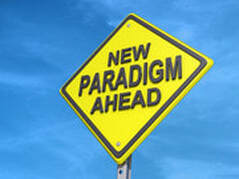 At the centre is the “paradigm”. This is the set of ideas or concepts that make up the world that you are building. Some of these are mutually exclusive. You can’t have a world ruled by a King that is also a Republic, for example. This is where your antagonist becomes very important. Whoever is running the Evil Empire has to have some reason for doing it. They must also have some idea about what they want achieve from what they are doing. This is where LOTR actually fails, for me. I can’t understand what satisfaction Sauron gest from all that power. Just desiring power is too shallow for me. Power needs a purpose, otherwise it is of no use. So, to start your world building you have to construct a paradigm for it. That is all about the ideas and beliefs that underpin whatever its happening. What does “Evil” want to achieve and what does “Good” want to put in the place of Evil. Those things will define how the people live. If it is a tyranny, then you can’t give the people any power when it comes to decision making. On the other hand, if it is a collective, then the people will have plenty of say in what happens. Those are two extremes, of course.  Surrounding the paradigm are the six inter-connected elements that make the paradigm work. Leave out one, or put the wrong things into it, and the paradigm itself won’t stand up to scrutiny. For example, if you have a tyrant that controls the lives of everyone, you can’t also have an independent legal system, because that would be able to say “no, you can’t do that” to the tyrant. Sauron didn’t have a Court of Appeal, for example. Instead he had Ring Wraiths and Nazgul. So, the most important bit of the cultural web, after the paradigm, is the organisational structure that supports it. Traditionally there are three parts: The lawmakers (tyrants, kings, nobility, politicians, etc). Then there are the people responsible for applying the law (Civil servants, administrators, local government, police, Ring Wraiths etc) and finally there is the legal system that sorts out the disputes over what the laws really mean and how fairly they are applied. Even if you have a tyrant running your world, you’ll still have a legal system – it just won’t be a very fair one. For example, the legal system may just be made up of “enforcers” who go around imprisoning, or even executing, anyone who criticises the ruler. 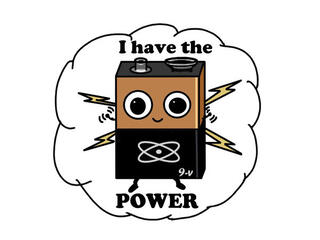 Next up are the power structures. Now, you may think that I’ve already covered those above, but not everyone who wields power is part of the organisational structure. Other people hold power of one sort or another. Businesses, trades unions, religions and more. Who you give power to in your world is quite important as those people can be enemies or allies, whichever you choose them to be. And the amount of power they wield can have a serious impact on your plot. An ally who is powerless isn’t of much use to you and an enemy without a source of power is easy to beat. Your magical figures will fit under this heading, because magic is a source of considerable power. Control systems are a bit abstract in many ways. If you are a King and you make a law, how do you make sure that the people obey that law? There has to be some way to do that. The most obvious example is the police and legal system, but there are other ways of exercising control. Fear is one (don’t stand on a balcony in Russia), wealth is another – either as a reward or a penalty. Control of other resources is a source of power, so it's another way of ensuring compliance.  So, how does your tyrant make sure the people obey? And if you want to depose the tyrant, what control systems must you dismantle or subvert? The whole point about the One Ring was that it was able to control the beings that wore all the other rings. It was even engraved on the inside of it, so everyone knew what it was! And if you dismantle the existing control system, by destroying the One Ring for example, how do you then exercise control afterwards? Or do you let your world descend into anarchy? 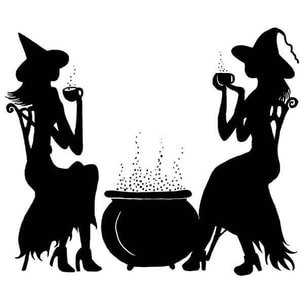 Rituals and routines form an important part in maintaining control over people. Getting people into church (or a mosque or a temple) every week, for example, prevents adherents to the religion from drifting away. The more people you have in your religion, the more power you wield, so you don’t want to lose any. It is also where messages can be sent out and heard. Historically, the pulpit has always been used by governments to send out its messages and to exercise control. I’m sure we can all think of countries where this still happens. But those aren’t the only rituals. Weddings, funerals, christenings, workplace meetings, even getting together once a week for a family meal, to watch TV or go to a football match, all form part of the rituals that identify us as being part of a community. Taking part in a ritual says “I belong here.” They also say “I am conforming, so you don’t have to send me to prison or execute me.” They can be used for good as well as evil. 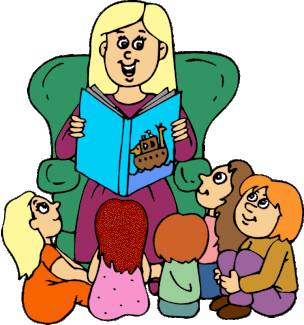 Believe it or not, stories play a very important part in culture. Stories about heroes encourage the sort of behaviour you want to support, while stories about villains tell you what sort of behaviour you want to discourage. It’s why Bible stories are told, it’s why Aesop wrote his fables and it’s the way the media influences public onion on a wide range of issues. (and you thought they just reported the news) But the heroes and villains of these stories will be different in every culture. In a communist country the heroes might be Marx and Lenin. In Britain Robin Hood is a hero, which is no mean achievement for a thief. Marvel and DC comic books are all about telling stories that express American values. Cults create heroes out of ordinary people, often stretching the truth or telling lies to make the person seem more significant than they were. The media often creates heroes – and villains. Sometimes they even start as heroes and then get turned into villains when the media wants to change the narrative. You will be familiar with the old saying that one man’s terrorist is another man’s freedom fighter (Nelson Mandela). And one man’s despot is another man’s saviour of the nation – politics tells us that because we all see politicians as one or the other depending on which side of the fence we are viewing from. It’s the stories that are told about them that make them one or the other. 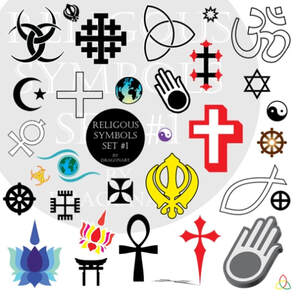 Finally, we have the symbols of our culture. Many of these are physical, such as flags, buildings, coats of arms, etc. We have symbols of wealth that encourage people to strive to achieve. Religions are very big on symbols, as they are with rituals. We salute the symbols we support and we tear down those we despise. But there are also more abstract symbols with which we engage. Symbols may take the form of songs (national anthems are a symbol), the sports we play or watch, etc. The language we use is a symbol, as are phrases such as “motherhood and apple pie” because they are symbolic of cultural values. If you wear any sort of badge (including wrist bands etc) or you wear a tee-shirt with a slogan on it, you are wearing a symbol that declares your allegiance or an ideal you support. The same will apply to your characters. I'm sure that we can all think of symbols that have played a powerful part in events. A swastika will forever be a symbol of hate. So, a lot to think about if you are a world builder who wants to create a world that is believable. I have used mainly real world examples to illustrate what I mean, so if you are a fantasy author you will have to imagine the equivalents for your world. But with a strong culture that your readers can identify, the hero will be able to do things to change the culture for the better and the villains will oppose those changes, which makes for a more satisfying plot. Your hero may spend a lot of time killing dragons, but what do they do with the dragon’s horde once the dragoon is dead? If they keep it for themselves, they are just as bad as the dragon (Thorin Oakenshield in The Hobbit), so they must use it to either support or change the paradigm you created for their world. If you have enjoyed this blog, or found it informative, then make sure you don’t miss future editions. Just click on the button below to sign up for our newsletter. We’ll even send you a free ebook for doing so.
0 Comments
In this last blog before the Christmas holidays, we've handed it over to one of our authors to get her take on one of the stories from Christmas. All views expressed are those of the author and aren't necessarily those of Selfishgenie Publishing. Note: This is a work of fiction. 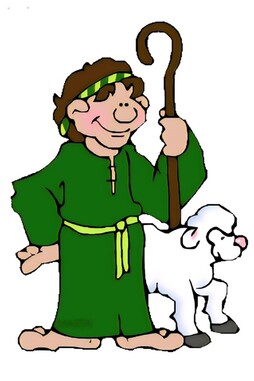 The first Christmas Day - a hillside near Bethlehem - night has fallen. “It’s a cold one tonight, alright.” Dave said as he returned from checking what the sheep were up to out on the side of the hill. He stretched his hands towards the fire and rubbed them to restore his circulation. He saw that the food was cooked and took a piece, savouring its delicate musty flavour. “You’re not wrong there.” Another Dave replied. “If it gets any colder I’ll have to wrap a fleece around my shoulders.” “Shhhh!” A different Dave hissed, pointing towards the sheep. “If they hear you say that they’ll get upset. You know how easily upset they get and seeing your drape the skin of one of their half brothers around you will get them in a really bad mood.” “Sorry, wasn’t thinking.” Another Dave apologised. He popped a morsel of food into his mouth. “Hey!” The first Dave said, pointing towards the sky. “What’s that bright light?” “Where?” A different Dave replied, searching the heavens, but looking in entirely the wrong direction. 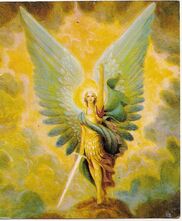 “There, you idiot! Over there, near where that bright star’s been for the last few nights. But this one’s moving. Look, it’s getting bigger and it seems…” realisation dawned on him. “It seems to be coming straight for us.” “One of those burning rocks we sometimes get.” A different Dave responded, disinterestedly. “Hang around on this hillside long enough and you’ll see plenty of them. Course, you’ve only been a shepherd a few weeks, but us old hands, like another Dave here, we’ve seen it all, haven’t we?” Another Dave nodded his head. “We sure have. But I have to say this one looks a bit different. For a start, it’s a lot brighter looking, and it isn’t moving in a straight line like they normally do. This one is sort of … well, zig-zagging a bit, like it's looking for someone to hit.” “Hang on,” The first Dave said. “It seems to be slowing down, sort of hovering like.” “Kneel before me, Puny Humans.” A voice boomed out of the brightness.  “No need to shout mate. We’re right here. We can hear you, you know. And turn the brightness down a bit while you’re at it.” Another Dave shielded his eyes from the glare. “Oh, sorry.” The voice got quieter and the light dimmed, to reveal a figure within it. “Now, where was I? Oh yes. Kneel before me, Puny Humans.” “Do you mind if I don’t” A different Dave said. “At my age the old knees give me a bit of trouble if I kneel. If it wasn’t for the herbs I chew, I’d be in constant agony.” “Oh, OK. But you other two ….” “I kneel before no man!” Another Dave pronounced, taking up a pugnacious stance. “Women though, that’s different. I’ll kneel before a woman anytime, if you get my meaning.” He leered and let out a dirty chuckle. “Well, if you two aren’t kneeling, I’m certainly not.” The first Dave chipped in. “I am the Archangel Gabriel!” The voice figure turned up the volume to booming level again. “I am the Messenger of God. Why do you not quake before me?” 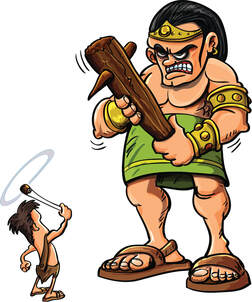 “Look mate, no offence or nuffin’, but we’ve ‘ad Canaanites, Hittites, Assyrians, Babylonians, Egyptians, Sumerians, Greeks and now Romans through here. They couldn’t make us kneel, so you’ve got no chance. You may be the Messenger of God, but you ain’t God, so we ain’t kneeling. Nor are we quaking, trembling, worrying or hurrying.” Another Dave said his piece and sat down at the fire once more, his back to the Archangel. “Oh, well … erm, OK, I guess you don’t have to kneel then.” The Archangel admitted defeat, the volume of his voice once again reduced to a more conventional level. “I must say, you make a nice change.” A different Dave said. “Normally we get burning bushes or columns of fire that talk. It’s nice to have an Archangel for once.” “There was that talking frog, that time. remember?” Another Dave said. 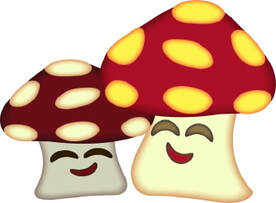 “Oh yeah. We heard that after we ate those funny mushrooms we found on the hill.” “In fact, we generally hear things when we eat the funny mushrooms, come to think of it.” The first Dave observed. “I wonder if the two things are …” “If I might get us back on track.” The Archangel interrupted their reminiscences. “I’ve got a city to destroy for failing to obey the Word of the Lord and if I don’t deliver this message first, I’ll be late.” “Oh yeah, you go ahead then.” The first Dave said, sitting back down next to the fire, opposite another Dave but facing the Archangel. He popped another morsel of food into his mouth. “Hang on a minute …” The Archangel said, puzzlement in his voice. You …” he pointed at the first Dave. “Your name’s Dave, right?”  “It certainly is. Dave bar Dave, that means son of Dave, seeing as you’re a stranger around these parts.” “I know what ‘bar’ means.” The Archangel replied testily. “I’m not a moron.” “That’s a matter of opinion.” Another Dave muttered. “And you … You’re Dave too.” He pointed at another Dave. “That’s right. There’s Daves in our family going all the way back to Noah.” “And he’s Dave?” he pointed at a different Dave, who thought the dark shadows away from the firelight concealed the fact that he was picking his nose. “That’s right. Everyone around here is called Dave. ‘Cept the women of course. They’re all called Davina instead.” “But why? Isn’t that a bit confusing?” “’Spose it is a bit.” Another Dave conceded. “But this ‘ere …” he swept his arm around to encompass the nearby city. "This ‘ere is the City of David, so we’re all called Dave, or David if we’re on our Saturday best behaviour.” The Archangel shook his head, but wisely decided not to pursue the subject anymore. Instead, he refocused himself on delivering his message.  “This night, in the City of Bethlehem, a child was born. He is the Son of God and he shall be called Emmanuel.” “Emmanuel, eh? Sounds a bit French to me. Why can’t he be called Dave like everyone else?” Another Dave asked. “Because God wants him to be called Emmanuel and, as he’s God’s son, I think God has the right to name him!” The Archangel was clearly losing his patience. “Alright, alright. Keep your wings on Archie. Anyway, what’s this got to do with us?” “You are commanded to go to Bethlehem, to the stable where the child was born, and there to pay Him homage and to worship Him.” “A stable, eh?” The first Dave said. “Doesn’t sound too hygienic for a new-born baby. And if he’s the Son of God, you’d expect him to be born in a nice private hospital, wouldn’t you?” “God wanted it this way.” The Archangel snapped. “Look, are you going or aren’t you? Because if you aren’t, I’ve got to find someone equally as common … I mean humble … as you to go and bear witness to the child’s birth.” “But why us? Why should we go?” “In years to come, there will be a need for men to bear witness to the circumstances of His birth, that’s why. You’re as good as anyone. Oh, and there are three Wise Men on their way too. They will be witnesses as well.” 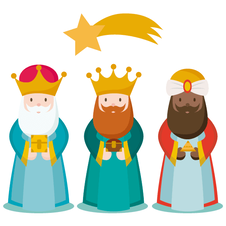 “But we didn’t see him being born.” A different Dave objected. “We’re only finding out about it now. And, anyway, one baby looks just like another baby. They all look like little Buddhas.” “For heaven’s sake don’t drag Buddha into this. We’ll be here all night. Look, go, don’t go. I’m past caring.” With that the Archangel turned up his brilliance again and shot skywards, fast dwindling into a distant speck of light, which then got lost amongst the stars. “Bloody Archangels. Think they’re God’s gift.” Another Dave muttered under his breath. “I suppose they are really; God’s gift I mean.” The first Dave said to no one in particular. “That would explain the bright star hanging over Bethlehem. It's a wachamacallit … a sign.” A different Dave said. “Yeah, I suppose it is. But I didn’t think it meant ‘Son of God born here.’” “Are we going, then, to Bethlehem?” The first Dave asked. "I quite fancy a night out." "There’s no point.” A different Dave said. “How can we be witnesses? No one ever comes up here, so we can’t tell them what we saw. And we can’t write it down ‘cos we can’t write. If we could write we wouldn’t be shepherds, we’d be Wise Men, or at least postmen. So let the Wise Men be witnesses. Or the postman, for that matter.” 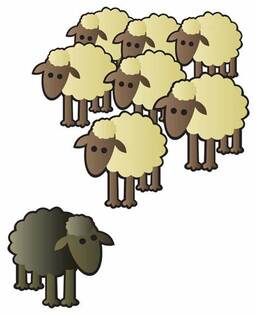 “That’s good thinking, that is.” The first Dave said. “Those Wise Men are bound to write down what they saw and then the whole world will be able to read their eyewitness testimony. Maybe they’ll get their own section in the Bible, when it’s updated of course. You know, Bible 2.0.” “Yeah,” said a diffident Dave said. “They’ll probably get a whole book to themselves, like Isaiah or Deuteronomy. Who was Deuteronomy, anyway?” “Wasn’t he a cat?” The first Dave answered, sure he’d seen him in a show at some time. “Besides, there’s no one to mind the sheep. I think the whole thing’s a scam anyway.” Another Dave stated, throwing another log on the fire. “What do you mean?” The first Dave asked. “Think about it. It’s obvious, innit? That Archangel comes down here, spins us a yarn about the Son of God being born in a stable, so we go rushing off there to see it. Then, when we come back, the bugger’s nicked all our sheep while we were gone.” “But what about the Wise Men?” The first Dave persisted. “That’s the biggest clue of all. The only Wise Man you’ll ever see in Judea is the one that looks after his sheep and doesn’t let some passing Archangel nick ‘em!” “Yeah.” The first Dave mused. “Maybe you’re right. Got any of those funny mushrooms left? Or did we scoff the lot before that Archangel arrived?” If you have enjoyed this blog and want to make sure you don’t miss future editions, just click the button below to sign up for our newsletter. We’ll even give you a free ebook for doing so.
We’re taking a break over the Christmas and New Year period, but we’ll be back with a new blog on a publishing, book marketing or author based theme, on Saturday 7th January. In the meantime, all the staff here at Selfishgenie Publishing, and all our authors, wish you a very Merry Christmas and a Happy New Year. This week we hand over our blog to author Robin Saint, who wanted to plug his book "Outlaw", but we wouldn't let him. The views expressed in this blog are those of the author and aren't necessarily those of Selfishgenie Publishing.  It is that time of year again, and no matter how hard I may try to avoid it, it’s not going to go away. So, if I have to address the subject at all, I may as well make this blog useful. If you are one of those gift givers that has a natural talent for choosing the right thing, then this blog may not be of much use to you – but for everyone else,, you may find it useful. Oh, by the way, just because the recipient said ‘Thanks, it’s just what I wanted” it doesn’t mean they meant it. They may have just been trying not to hurt your feelings. Look at the eyes – are they smiling as much as their mouth? As a male, this list tends to be focused on what men like or don’t like to receive, but I’ve added a special section at the end that hard won experience tells me what women don’t like.  The Top Ten Worst Christmas Presents
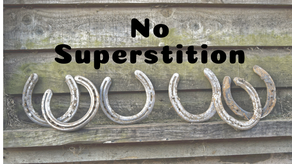 10. Anything to do with astrology, feng shui and other “ancient wisdom” or “new age” philosphies. – See also item 9. Come on people, we live in the 21st century. The reason people believed in this stuff in the past was because they knew no better. We do know better. It doesn’t work and never worked. Events will happen or they won’t happen. They can’t be predicted and they will still happen or not happen no matter how you arrange your furniture, place crystals around the room or make things smell. If you dance naked in the moonlight on Mid-Summer’s eve and then win the lottery the next day then it’s a coincidence. You would still have won the lottery if you’d stayed fully clothed and gone to bed instead. The only people whose fortunes improve through belief in this stuff are the people who make, sell or publish the garbage that perpetuates this superstitious mumbo jumbo. You may think it odd to exclude presents related to religion and superstition from a list related to a religious holiday, but I make no apologies. I celebrate Christmas as a tradition, much the same as I do Halloween, not as a religious act.  My Top One Best Christmas Present. A gift that suggests that the giver has spent some time thinking about the recipient’s personality, their hobbies and pastimes, their lifestyle and other character related traits. If they enjoy gardening, make it gardening related. If they enjoy long walks in the country, make it something that can be used on long walks, or which inspires them to find new places to go for walks. It might not be what they wanted, but it will show that you cared enough to think about it and, as we all know, it’s the thought that counts. It will also show that you read this list. What not to give a woman.  1. Sexy underwear or lingerie. I’m not being politically correct here, it’s just that men usually get it so wrong. They buy what they think is sexy, or imagine is sexy, not what the woman will feel comfortable wearing. It can make a woman feel like a sex object and that is something the modern woman is unlikely to appreciate. Even if she doesn’t object on the grounds of feminism, the man’s taste in such garments is likely to make a woman cringe. Best to stay away from that whole lingerie area – and probably night attire as well. You can't win, so don't try. 2. Perfume. Of course, many women love perfume and it is actually a good gift – if you buy the right perfume. Women are very fussy about their scents, so buying the perfume that has the most pretentious advertising campaign rarely works. If you want to buy perfume, do some research. Ask her best friend what she wears, ask her Mum, her sister, ask just about anyone who knows her. If you live with the woman in question, or have access to her bedroom (not in a creepy way) then check out the dressing table. The favourite perfume will almost certainly be in pride of place and the bottle will probably be almost empty because it is used so much. Memorise the name. Write it down. Have it tattooed on your arm if necessary. Just a tip - if it costs less than £50 ($60) then it probably isn't the right perfume. 3. Kitchen or household goods or appliances. Already mentioned above, but this is a particular no-no for husbands and boyfriends to give. A quick way to spend Christmas Day in frosty silence is to buy your beloved a new vacuum cleaner, a set of matching bath towels or, even worse, kitchen towels. 4. Never give a woman bathroom scales or anything weight loss related - unless you like eating hospital food. You may think this shouldn't need saying, but I know at least one man that made that mistake (unsurprisingly, he's now divorced). 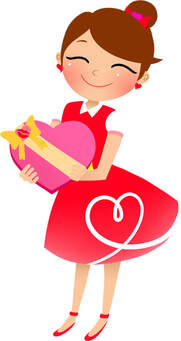 How to get the right present for a woman Listen! Since the beginning of November, possibly earlier, the woman in your life has probably been dropping hints about what she would like for Christmas. If she’s been stopping next to jeweller’s shop windows, in the perfume departments of department stores, asking you if you like such and such a dress in a shop window, she hasn’t just been making idle conversation, she has been telling you this is what she really, really wants. If she said she’s always wanted to drive a Formula 1 racing car, then she wasn’t just fantasising, so get her an Experience Day so she can live her dream. With regard to Experience Days, do be careful. Thinking ‘she’ll love this’ is dangerous if she hasn’t said she would love it. It’s also dangerous to assume that she’ll enjoy doing something as a couple. Just because you want to jump out of an aeroplane at 10,000 feet it doesn’t mean that she does. Spa days and pamper days are popular with most women, but they aren’t a solo experience. Either you have to be prepared to go with her, or you have to give it as a day for two people so she can take her bestie. If your beloved hasn’t been quite so forthcoming, then ask her to make a list and e-mail it to you, with links to web pages where you can see the items for yourself. Make sure you pick one item from the list and you can’t go wrong. It isn’t romantic, but it works. The surprise element comes from her not knowing which item from the list you will choose. And if you want to receive a present that you will enjoy, then make sure you have a list. People will ask the special someone in your life what you would like for Christmas and if they have a list, they can answer. And if she doesn't seem that excited when you hand the present over, at least you have the excuse that it was on the list. And if you love her, make sure that your Christmas present to her tells her so.  Tips for everyone Amazon wish lists are very useful. Set one up and make sure people know where to find it. Even if your friends and relations don’t shop on Amazon, they can still check out your list to get ideas for what to buy from wherever they do shop. Personally, I think you can’t go wrong with a book both for men and for women. If you know what sort of books the recipient likes to read, then choose the latest best seller in that genre (but it is worth checking with a family member or friend to make sure they haven’t already bought it for themselves}. If they are a sports fan, then a book related to their favourite sport ticks two boxes at once. If you are thinking of giving a book, then check out the “Books” tab on this website for some great ideas - especially for lovers of sci-fi, World War II action and golf. (there's a particularly good one on there about Robin Hood but Selfishgenie won't let me tell you its title). If you have enjoyed this blog and want to make sure you don't miss the next edition (which is all about audiobooks), then why not sign up for our newsletter? We'll even send you a free ebook if you do. Just click the button below.
This week our guest blogger takes a look at the vagaries of the English Language and how we ended up where we are. The views expressed in this blog are those of the blogger and don't necessarily represent the views of Selfishgenie Publishing.  One of my friends on Facebook, an Irish lady, posted this picture and asked an open question about who felt confident about the pronunciation of the product name (no, not Heinz - the other bit) . She was re-posting it from another Facebook page which is owned by an American on-line magazine. I was able to reply with the information that English place names that include the letters “cester” don’t actually pronounce the “ces” part, so the correct pronunciation is Wooster-sheer. The incorporation of “cester” into a place name means that it was founded by the Romans when they were in Britain and has its origins in “castra”, which is Latin for a camp. It is also the origin for place names that include “chester” as in Chester and Manchester. From that word we also get Doncaster and Lancaster. Incidentally, the “lan” part of Lancaster comes from the nearby River Lune (pronounced loon), but I’m guessing the people of the city didn’t fancy being known as the people from Looncaster.*  Chester - a city founded by the Romans Chester - a city founded by the Romans The pronunciation of Worcestershire is problematical for three reasons. Firstly, there is the pronunciation of Worc, It looks as though it should be pronounced as work, but the c in cester is soft, which makes the pronunciation worse, both literally and figuratively. I’m guessing the people of Worcester and its parent county didn’t fancy living in worse-tur, so the pronunciation shifted to woos. Secondly the “shire” part is pronounced sheer when it is quite clearly spelt to rhyme with hire. But that’s the English language for you, full of anomalies such as that one. I’ll return to that a little later. The final reason for this pronunciation being problematical, and pedants will already be penning their e-mails to tell me so, is that it is a sweeping generalisation and can’t be universally applied. What about “Cirencester”? They will ask. The “cester” in that is pronounced, otherwise it would be siren-stir and not siren-sester, like sister but spelt with an e. But anyway, Gloucestershire is pronounced gloss–tur-sheer, Leicestershire is less-tur-sheer, Towcester is toaster and Alcester is all-stir. 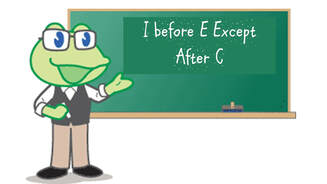 This is part of the problem with English. It isn’t consistent with the application of its own rules. Especially the English that is spoken in the United Kingdom. Take “I before e except after c”. I think there is sufficient evidence to allow us to draw a veil over that one. In fact, there are far more words that don’t obey the rule than there are words that do. The saying itself isn’t even complete. Ebenezer Cobham Brewer’s 1880 “Rules for English Spelling” gives it as “i before e, except after c, or when sounded as "a," as in neighbour and weigh.” But there is insufficient evidence to support that, either. Despite Cobham being English and never having visited America, the use of his rule in schools started in America, not Britain. But there you go, rules are meant to be broken (actually they aren’t, but that’s a whole different blog). But there are a lot of words we don’t know how to pronounce, or which some Smart Alec decides we are pronouncing wrongly and who change it. Take the name of the warrior queen Boadicea, for example.  Actor Alex Kinston as Boadicea Actor Alex Kinston as Boadicea A long time ago, when I was growing up, she was universally referred to as Boadicea (Boa – d - seer). It is even engraved on her statue, which stands close to Westminster Bridge in London. In 1797 a British frigate was named HMS Boadicea, there was a passenger ship of the same name which was wrecked off the coast of Ireland in 1816 and there was a 1928 film entitled Boadicea. Yet somehow it was decided by someone that this was wrong and all of a sudden everyone started calling her Boudicca (Boo-dick-uh). Why and on what authority? I blame actor Alex Kingston, who starred in the TV drama Boudicca, Warrior Queen, in 2003. 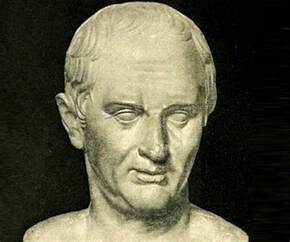 Roman historian Tacitus; AD56 to AD 120 Roman historian Tacitus; AD56 to AD 120 The only reason we know of this woman’s existence (that’s Boadicea, not Alex Kingston) is because of the Roman historian Tacitus, who recorded much of Rome’s history of the first century AD. However, he wasn’t born until AD 56 and never set foot in Britain. Given that Boadicea (I shall insist on using that name) died in AD 61, Tacitus would only have been 6 or 7 years old and could only have heard of the warrior queen second hand from his father, who had served in Britain 3 times, including during the rebellion for which she is famous. He would have heard about her in Latin, the Roman language and not the language of Britain, whose native people were Celts. It is from Tacitus that we get the spelling and pronunciation of Boadicea, not Boudicca. As the Celts didn’t have a written language at this time, we have no idea how her name would have been spelt or how the Celts would have pronounced it. So, it would appear, someone has taken it upon himself (or herself) to decide how the Celts would have pronounced it, with no regard for the lack of historical fact. They may look to Welsh, Scottish or Irish pronunciations, but that would be wrong, because those nations would have rendered the name into their languages from Latin as it was the only written source available. 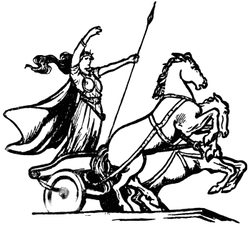 If you doubt this, then you have only to look at how Welsh and Gaelic speakers render modern words into their own language. The Welsh for “television” is teledu and the Irish is teilifís. Given that these words were created in modern times they could just have been accepted without translation, much as the French use l’weekend, but no, they had to be given a linguistic twist to make them “Celtic”. Could the same not have been done with the name of Boadicea? Is the use of the name Boudicca not just us pandering to first century Celtic chauvinism? Or maybe even to late 20th century Celtic chauvinism. What is my evidence for all that? She wasn’t actually a Queen at all so would not have been known widely outside of her own lands. She was the wife, and subsequently widow, of Prasutagus who was a client King of the Romans in an obscure and quite remote part of eastern England, a small part of the county we now call Norfolk. Her rebellion was short lived, lasting only a few weeks, and while she wrought havoc during that time she died ingloriously, crushed by the Roman legions. She wouldn’t have been admired, even by her own people, after that defeat. In fact, given the reprisals visited on the natives by the Romans after the rebellion, it is more likely that her name would have been more cursed than celebrated. As I said, the only reason we know about her at all is because of a Roman historian who wrote her name in Latin and it was Boadicea. 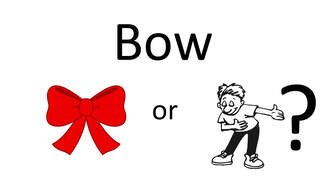 But back to words and their pronunciation. How do you pronounce “bow”? If you have thought about it you will have come up with two different pronunciations. Pronunciation (1) rhymes with “go” and pronunciation (2) rhymes with “cow”. You only know which is correct when you put other words alongside it to make it clear which bow you are talking about. So, you would need to know that the mother tied the ribbon into a pretty bow for her daughter’s hair, or that the man bent over in a deep bow of respect for the king. English is almost unique in having words that can be both nouns and verbs, depending on how we use them. No other language does that. This is why we get a noun such as bow, which can mean a knot or a weapon, and also a verb, to bow. We also have run, which is a verb and also a noun – a place for running as in chicken run and walk, a verb which means to move at a particular pace but which can also be a noun – a good walk. There are many others. How do we teach this to our children? Actually we don’t. They appear to learn it for themselves. No one is sure how, but they seem to pick it up instinctively. However, in many ways English is also a simple language. Take the definite article “the” as in the chair, the table etc. That’s it. That’s all we have. It’s gender neutral and doesn’t change between the subject and object of a sentence. German has der, die, das, den and dem for the same thing and the French have le, la and les and also, frequently, l’. In German there are 7 different versions of “you” depending on gender and familiarity with the person being addressed. The French have at least 2, tu and vous (I’m not a linguist so I am happy to be corrected on that). The Japanese have 7 forms of “thank you” starting with the simple arigato and moving up though levels of formality until the speaker is lying prostrate, face down on the ground. Just joking, but it isn’t far from the truth. The Japanese language is very big on formality, as are many others. English, however, seems to be much less worried about formality these days. 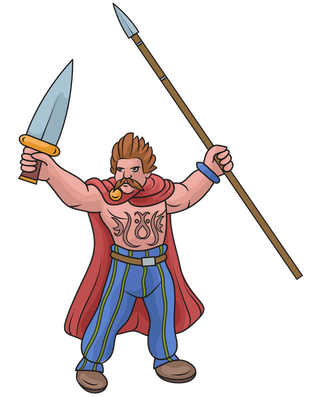 Much of this is because our language isn’t pure. 2,000 years ago the residents of these islands would all have spoken the Celtic language(s), because the Romans’ only successful invasion wasn’t until AD42 (get ready for a big anniversary party in 20 years’ time). But they wouldn’t all have spoken in the same dialect. We know this because Welsh, one of the ancient Celtic languages, is different from Gaelic, which is spoken in both Scotland and Ireland but has differences even between them. They are all different from Manx, spoken on the Isle of Man., Then there’s Cornish and Breton. It wasn’t really the Romans that brought us Latin, it was more to do with the clergy, who used Latin to communicate between themselves and taught it to the children of the aristocracy and the wealthy, who also used it as a way of communicating with their peers throughout Europe. Many of our words have a Latin origin, even though a lot of them came via other European languages. European philosophers loved the Ancient Greeks and quite a lot of our words have their language as their origin because of that, especially those relating to medicine and science. 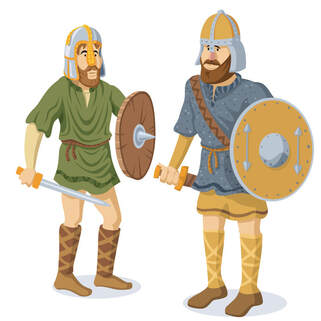 About 1,500 years ago our ancestors started to speak Anglo-Saxon, brought with us (or perhaps to us, depending on your ancestry) by the invaders who filled the power vacuum created when the Romans went home. This is still the basis for our language but only scholars of mediaeval languages would be able to understand what a Saxon warrior was saying, were one to rise from the dead in today’s Britain. Mixed in with our Anglo-Saxon is Norse, brought to us by the Danes and Norwegians between 1,300 to 1,000 years ago, then sprinkle in some Norman French which arrived 950 years ago. Thanks to the Plantagenet’s we get more French, the real thing, which was brought in about 850 years ago and from that recipe the language we now call English began to emerge about 700 years ago. English wasn’t even the official language of the Royal Court until the time of Richard II, who died in 1400 (Trivia - he also introduced the fork into England as an implement of cutlery). With a bit of difficulty, we would be able to understand the dying words of Watt Tyler, the leader of the Peasants’ Revolt, who died in 1381. As he was beheaded his last word was probably “argh”, but you get the idea. 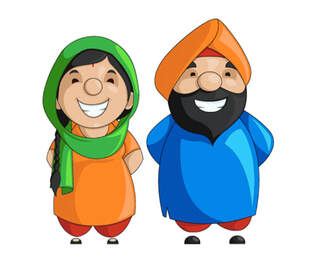 The eastern influence The eastern influence Even though English was a fully formed language by the 1500s, it didn’t stop changing even after that. In the 19th century we started to adopt words from much further east. If you are in the habit of wearing pyjamas when you are in your bungalow, you are using two words that have their roots in India. From that it is unsurprising that so much of our language is confusing. Each new addition brought new words, new ways of saying things and new ways of spelling, much of which wasn’t written down because the Anglo-Saxons and the Danes didn’t have a written language at the time of their arrival. It was monks who wrote things down and they did it in Latin, not Anglo-Saxon. When the monks started to create a written version of the common languages they had to invent new letters, such as æ because there was no equivalent sound in Latin. They even had to invent the letters J and W because these weren’t in the original Latin alphabet. That’s right; You couldn’t go to a J D Wetherspoon’s pub in early Anglo Saxon times, it would have been I D Utherspoon’s. 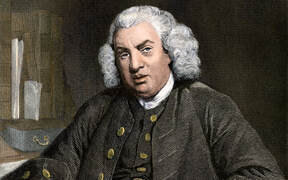 The grumpy looking Dr Samuel Johnson (1709-1784) The grumpy looking Dr Samuel Johnson (1709-1784) In fact English spelling as we know it didn’t come in until Samuel Johnson published the first English dictionary in 1755. Up until then people spelt things pretty much as they felt like it; even their own names. There are, allegedly, at least three different versions of the spelling of Shakespeare’s name, all in his own handwriting (scholars now dispute this, but they always did like to spoil a good story). Even after the publication of Johnson’s dictionary it took some time for spelling to become standardised and to take on their modern forms. American spelling didn’t start to be standardised until 1828 when Noah Webster published his “American Dictionary of the English Language”. This is the one that led to the Americans starting to leave the u out of words like colour and to put z where it had always been perfectly adequate for an s to be. Webster felt it necessary to try to simplify the language for the benefit of the wide variety of immigrants who were arriving in their droves from Europe.  Just a note for my American readers (and many British too, because they make the same mistake). When you see a sign like this one it isn’t pronounced Yee Oldee. The Y isn’t a Y, it is an obsolete letter called a thorne and is pronounced th. Also, you don’t pronounce the e in Olde (or shoppe for that matter). So, it’s just plain “The Old”. Boring, I know. Robert Burchfield, who edited the Oxford English Dictionary for 30 years up until 1986, once caused quite a stir by saying that the British and American forms of English were drifting apart so rapidly that in 200 years’ time it was possible that we would no longer be able to understand one another. However, he was speaking in the pre-internet age (remember that?) and I think it is far more likely that we will soon all be speaking American English. Already I’m being bullied by software that provides an annoying red wiggly line under anything that it thinks should have a z in it when I think it should be an s, or when I spell “colour” with a u. How long before the weaker willed amongst us start to give in to this automated intimidation? Anyway, here’s one person who is happy to educate Americans on how to pronounce Worcestershire and who will always spell colour with a u. * The words “loon” and “lunatic” are derived from the French “la lune” meaning the moon and allude to the alleged strange behaviour of some people and animals at the time of the full moon. If you enjoyed this blog or found it informative, be sure not to miss future editions by signing up to our newsletter. Just click on the button below and we'll even send you an ebook of your choice for doing it. Would you like to be a guest blogger for Selfishgenie Publishing? Just email us with an outline of your blog. And you can also have a free ebook if we use your submission. Our email address is e[email protected]
This week we have lent our blog to the famous advice columnist (also know as an Agony Aunt), Auntie Vera*. Read on to discover what advice she offers the lovelorn, the confused and the downright bewildered. 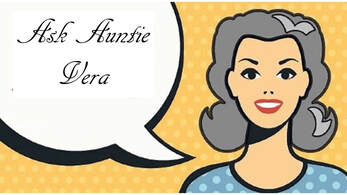 Dear Auntie Vera, I love dancing and like going out dancing on a Saturday night, but my boyfriend just wants to stay in and watch Match Of The Day. What should I do? Signed, Dancing Queen. Dear Dancing Queen, Get a new boyfriend. 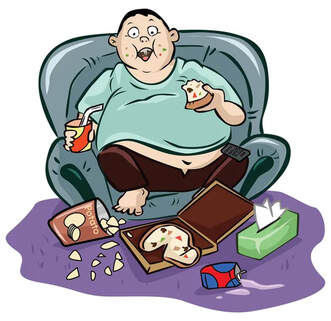 Dear Auntie Vera, When we first started going out, my boyfriend used to dress smartly, talk to me about my interests and pay attention to my needs. Now we’ve been going out for a while he just wears trakkie bottoms and a filthy tee shirt, talks only about football and ignores me unless he wants sex. What should I do? Signed, Peeved Dear Peeved, Get a new boyfriend. Dear Auntie Vera, My girlfriend has just dumped me because I wear trakkie bottoms and a filthy tee shirt, talk only about football and she says I ignore her except for when I want sex. What is her problem? Signed, Gooner. Dear Gooner, Look in a mirror. Would you date you? Dear Auntie Vera, I have often thought that I might make a good agony aunt. I like people, I’m a good listener, I have a lot of life experience and people listen to what I have to say. What do you think? Signed, Auntie Velma. Dear Auntie Velma, you sound like a crashing bore. You will probably do well but stay off my patch or you’ll get a visit from the boys!  Dear Auntie Vera, I’ve just met this fabulous footballer and I think I love him, but I’m not sure I can trust him. He has a bit of a reputation and I’m worried that if I marry him he might cheat on me. What should I do? Signed, Football Flirt Dear Football Flirt, get a pre-nup, marry him and then wait for him to do the inevitable. You’ll get half his money in the divorce settlement. Dear Auntie Vera, I’m a very rich footballer and I can have any girl I want. Indeed, I’ve already had most of them, but I’ve just met this gorgeous girl and I’m worried that she’s only after me for my money. What should I do? Signed, Fickle Footballer. Dear Fickle Footballer, You’re arrogant, overbearing and you have the personality of a crustacean. Of course she isn’t after you for your money. She loves the real you. Marry her. Agree to whatever she asks for in the pre-nup.  Dear Auntie Vera, I post lots of things about myself on social media, including photos and most of my personal issues, my likes and dislikes and my political and religious views. I really like the publicity so much. But that isn’t my problem. My problem is that the newspapers keep writing stories about me as though they know me. Do you think my phone is being bugged? Signed On-line Celebrity. Dear On-line Celebrity. Are you really that stupid? Dear Auntie Vera, Whenever I go on social media I get bombarded with advertising. But the puzzling thing is that the advertisements are all for products I have done searches on, or I have posted comments on in other people’s posts. I’ve even shared some of them. I did a quiz about 1970s pop bands and then got advertisements for products aimed at people in their 60s. It's almost as if the advertisers know me. Is this a coincidence?  Signed Social Media Junkie Dear Social media Junkie. Are you really that stupid? Dear Auntie Vera, The world is going to rack and ruin. What should we do? Signed Desperate. Dear Desperate, Go to Tenerife instead. 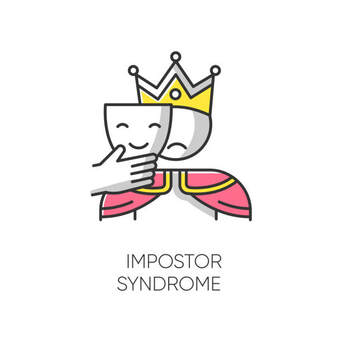 Dear Auntie Vera, I am an author plagued by feelings of doubt about my talent. I don’t think my work is good enough, despite the fact that lots of readers buy my books and post nice reviews about them. What should I do? Signed, Doubting Wordsmith. Dear Doubting Wordsmith, The short answer is “grow a pair”, but I doubt that this will satisfy you. So, here’s the psychobabble answer. There is nothing unusual about doubting our own abilities. In fact, it is healthy to do so as we then try to do better. But don’t let doubt cloud your belief in yourself. Let others be the judge of your talent, as they will see it through different eyes. Only if the readers say you have no talent should you re-think your life choices. Dear Auntie Vera I have just signed a book deal. How much am I allowed to brag about it on social media? Signed Proud Author Dear Proud Author. Brag about it as much as you like. Nobody of social media gives a you-know-what anyway and it is better than boring your family and friends with the news.  Dear Auntie Vera, I’m a member of a writing community that uses the hashtag #WritingCommunity on social media. They all say how much they support Indie authors, but very few seem to buy any of the work by them. Is it all talk? Signed Puzzled Tweep Dear Puzzled Tweep. Yes it is all talk. Everything you see on social media is all talk. That’s why social media exists. Social Media "communities" give the illusion of providing support or taking action, while not actually having to do anything. But you can be different and take action by buying the books of other Indie authors. But you probably won’t because that requires you to take action too and if you wanted to do that you wouldn’t be asking me questions to which you already know the answers. 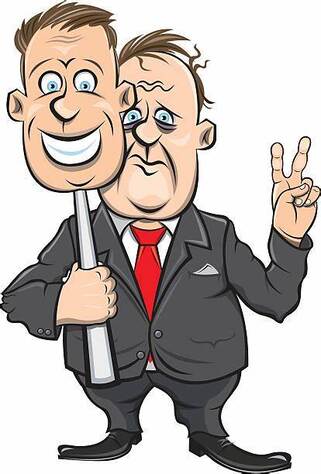 Dear Auntie Vera, No matter which political party I vote for, the same politicians seem to get elected. I don’t mean they are from the same party; I mean they just do as little as the previous lot. Is it me? Signed Frustrated Voter. Dear Frustrated Voter. No, it isn’t you. To quote Emma Goldman “If voting changed anything, it would have been made illegal”. Politicians stand for election because they have failed in just about every other walk of life. If they were clever, they’d be working in commerce or industry earning twice as much money. If they had real compassion, they’d be working for a charity on half the money and making a real difference to people’s lives. There is a famous line from George Bernard Shaw’s “Man and Superman”. “Those who can, do. Those who can’t do, teach.”** I’ll add to that with my personal view, “Those who can’t teach become politicians”. The people they are elected to represent have no further say in what the politicians do, at least until the next election, when they probably won’t vote him (or her) out of office because they could never vote for “the other lot” (regardless who the other lot are). This is a consequence of tribal behaviour and and the need to feel that we belong somewhere. This is why people also support failing football teams and talentless celebrities. So, we keep getting governments made up of people who lack any real talent, who rely on their manipulative Civil Servants to do most of the work, who want to please their financial backers more than they want to solve the nation’s problems and who cling onto power by making it seem they are doing something when whatever they are actually doing will change very little and which will benefit their financial backers the most. This applies to all the political parties, not just to the one that is in power at the moment. It probably also applies in all countries. Please remember all that the next time you step into a polling booth. But whatever you do, don’t stop voting. One day you may vote for that rarest of beasts, a politician that really wants to make a difference, instead of one that just says they want to make a difference. * Auntie Vera is not a real person and all of the above is intended as satire. Please do not take either the questions or the answers too seriously. However, satire is based on real life and usually carries its own lessons within it. ** Any teachers offended by this quote should complain to George Bernard Shaw, not to Selfishgenie Publishing. We happen to think teachers are great and do a wonderful job. Is that enough grovelling yet? If you have enjoyed this blog and don't want to miss future editions, then sign up to our newsletter. We promise not to spam you and we'll even let you choose a free ebook for doing it (T&C apply). Just click the button below.
This week we have turned our blog page over to one of our authors - and a golfing nut - Robert Cubitt to take a lighter look at his favourite game. 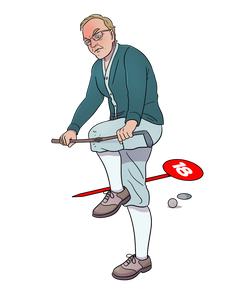 As a bit of relief from the seemingly endless politics and talk of war, this week’s blog is for the golfers amongst you, but I hope that non-golfers will also enjoy it. My thanks to all my fellow golfers who have unwittingly contributed to this page with their comments and jokes, on and off the golf course. Not all of them were meant to be funny, but so many of them were. A husband and wife, both golfers, were discussing the future when the wife said “If I died, would you marry again?” “Well, my dear, a man gets lonely so I might. But I could never find another like you,.” “You wouldn’t let her wear my clothes, would you?” “Of course not, my love." “You wouldn’t let here wear my jewellery, would you?” “Of course not, my dear.” “And you wouldn’t let her use my golf clubs would you?” “They’d be no good to her; she’s left handed. 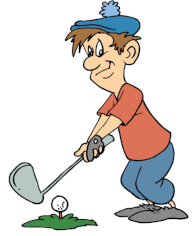 They stood at the altar, waiting to be married. The bride-to-be looked down and saw a set of golf clubs beside her new husband's feet. "What on earth are you doing with those golf clubs?" she whispered. "Well," he said, "this won't take all afternoon will it?" I don't say my golf game is bad, but if I grew tomatoes, they'd come up sliced. I was playing so badly that I decided to throw my golf clubs in the lake – and missed. “How was your golf game?” “Oh. You know, hit and miss!” 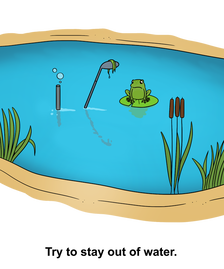 Golf, bloody golf! Golf is what you take up when sex becomes too demanding. Golf is the ultimate triumph of hope over expectation. Don't buy a putter until you've had a chance to throw it. Never try to keep more than 300 separate thoughts in your mind during your swing. When your shot has to carry over a water hazard, you can either hit one more club or two more balls. If you're afraid a full shot might reach the green while the foursome ahead of you is still putting out, you have two options: you can immediately shank a lay-up or you can wait until the green is clear and top a ball halfway there. No matter how bad you are playing, it is always possible to play worse 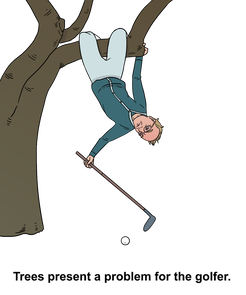 The less skilled the player, the more likely he is to share his ideas about the golf swing. The inevitable result of any golf lesson is the instant elimination of the one critical unconscious motion that allowed you to compensate for all of your many other faults. A golf match is a test of your skill against your opponents' luck. Counting on your opponent to inform you when he breaks a rule is like expecting him to make fun of his own haircut. The shortest distance between any two points on a golf course is a straight line that passes directly through the centre of a very large tree. You can hit a two acre fairway 10% of the time and a two inch branch 90% of the time. 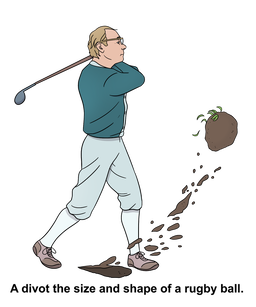 If you really want to get better at golf, go back and take it up at a much earlier age. Since bad shots come in groups of three, a fourth bad shot is actually the beginning of the next group of three. The Pro's say you should take a divot the size, shape thickness of a dollar bill. Mine are the size, shape thickness of a rugby ball. When you look up, causing an awful shot, you will always look down again at exactly the moment when you ought to start watching the ball if you ever want to see it again. Every time a golfer makes a birdie, he must subsequently make two triple bogeys to restore the fundamental equilibrium of the universe. To calculate the speed of a player's downswing, multiply the speed of his back-swing by his handicap; ie. back-swing 20 mph, handicap 15, downswing = 300 mph. Hazards attract; fairways repel. If playing a "provisional ball" always results in a shot that is far better than the original, why don't golfers play their provisional ball first?  The ball you can see in the rough from 50 yards away is not yours. If there is a ball on the fringe and a ball in the bunker, your ball is the one in the bunker. If both balls are in the bunker, yours is the one in the footprint It's easier to get up at 6:00 a.m. to play golf than at 10:00 a.m. to mow the lawn. A good drive on the 18th hole has stopped many a golfer from giving up the game. Golf is the perfect thing to do on Sunday because you always end up having to pray a lot. Golf balls are like eggs. They're white. They're sold by the dozen. And you need to buy fresh ones each week. If your opponent has trouble remembering whether he shot a six or a seven, he probably shot an eight (or worse). It takes longer to learn to be a good golfer than it does to become a brain surgeon. On the other hand, you don't get to ride around on a golf cart, drink beer, eat hot dogs and fart if you are performing brain surgery. 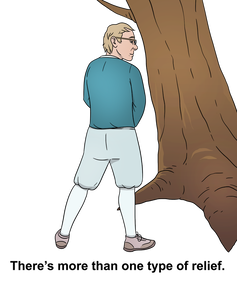 When practicing your putting on your living room carpet always remember that the ball will break towards furniture but away from walls. You have just missed a fairway that’s fifty yards wide, so what makes you think you’re going to be able to hit your ball through a gap in the trees that’s less than a yard wide? 10 Things in Golf That Sound Dirty...... 1. Look at the size of his putter. 2. Oh shit, my shaft’s all bent. 3. You really whacked the hell out of that sucker. 4. After 18 holes I can barely walk. 5. My hands are so sweaty I can't get a good grip. 6. Lift your head and spread your legs. 7. You have a nice stroke, but your follow through leaves a lot to be desired. 8. Just turn your back and drop it. 9. Hold up, I've got to wash my balls. 10. Damn, I missed the hole again. 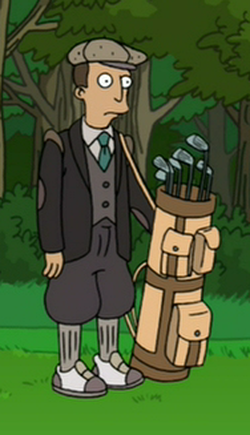 Caddies are the unsung heroes of golf. They have the golfing knowledge of an encyclopaedia, the patience of a Saint and the wit of Oscar Wilde. Golfer: "I think I'm going to drown myself in the lake." Caddy: "Do you think you can keep your head down that long?" Golfer: "I'd move heaven and earth to break 100 on this course." Caddy: "Try heaven, you've already moved most of the earth." Golfer: "Do you think my game is improving?" Caddy: "Yes sir, you miss the ball much closer now." Golfer: "Do you think I can get there with a 5 iron?" Caddy: "Eventually." Golfer: "You've got to be the worst caddy in the world." Caddy: "I don't think so sir. That would be too much of a coincidence."  Golfer: "Please stop checking your watch all the time. It's too much of a distraction." Caddy: "It's not a watch - it's a compass." Golfer: "How do you like my game?" Caddy: "Very good sir, but personally, I prefer golf." Golfer: "Do you think it's a sin to play on Sunday? Caddy: "The way you play, sir, it's a sin on any day." Golfer: "This is the worst course I've ever played on." Caddy: "This isn't the golf course. We left that an hour ago." 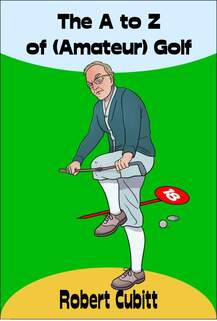 Golfer: "That can't be my ball, it's too old." Caddy: "It's been a long time since we teed off, sir." Golfer: “I don’t think my game could get any worse.” Caddy: “Give it time, sir, give it time.” Golfer: “Can you give me any suggestions?” Caddy: “Have you considered taking up fishing?” Robert Cubitt has taken another irreverent look into the golfing world with his book “The A To Z Of (Amateur) Golf" and some of the illustrations from that book have been included in this blog. To find out more about the book, just click on the cover image. If you have enjoyed this blog and want to be sure not to miss the next edition, why not sign-up to our newsletter? We promise not to spam you and we'll even give you a free ebook for signing up. Just click the button below. Once again we are featuring blogs by guest bloggers on a wide range of subjects related to reading and writing. All the opinions expressed are those of the blogger and are not endorsed by Selfishgenie Publishing. Enjoy! 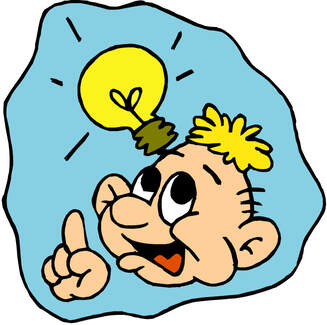 One of the questions most writers get asked is “where do you get your ideas from?”. While it’s a predictable enough question, It’s also one that’s easily answered. Ideas are all around us, we just have to look and listen and then let our imaginations take over. One of my earlier books was “The Girl I Left Behind Me”. The title came first. It’s the last line of the chorus to a traditional song and was used in the soundtrack of three John Ford westerns about the US Cavalry, titled Fort Apache, She Wore A Yellow Ribbon and Rio Grande. For some reason the tune popped into my head one day and I couldn’t shift it. But then it occurred to me that it would make a great title for a book. I quickly Googled it to make sure no one else had had the same idea (they appeared not to have) and then put it into my list of book ideas and let it ferment for a few weeks.  It’s the fermentation that is important here. I had a title but no idea what to do with it, so I let my unconscious mind work on it. I also looked up the origins of the song and found that it was traditional, probably 17th or 18th century British or Irish and had been popular with both sides during the American Civil War. Its rhythm makes it very suitable as a marching song which is why it has come down to us via a military route. Letting that information ferment alongside the title eventually gave me the idea of writing a story set in modern times about two young men who are born just a few streets apart but who go off to war to fight on opposite sides and who leave their "girls" behind them. The story is as much about the two women as it is about the men. I won’t give any more away, just in case you want to read it, but I’m sure you can see that once I had the basics mapped out, writing the story became something that was achievable. Not only that, but one of the characters I created for the book went on to feature in a sequel. 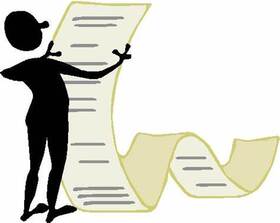 I have an ever-lengthening list of ideas for books that may, or may not, eventually see the light of day and they have come to me by a number of routes. They say that everyone has a book inside of them. American author Jodi Picoult added the rider “the problem is winkling it out” while British writer Christopher Hitchens is credited with adding “and that’s where it should stay”. But it is true. Everyone has a story that can be told, even if they aren’t able to tell it themselves. The problem Hitchens alludes to is making the story interesting enough to make people want to read it, which is the author’s job. For the author the only task in relation to coming up with new book ideas is to keep their eyes and ears open and the story ideas will come. At the moment I’m helping a fellow aspiring author by providing feedback on a book she is writing. I can’t give away the subject as that would be a breach of confidence, but the idea for it is straight off the front pages of the daily newspapers. She was so touched by what she was reading that the idea of not writing a story about it was probably more bizarre than the idea of writing it.  Does that mean that anyone can write a book? Technically yes. If you can write your name you can write a book. However, there is no doubt that some people have an aptitude for it and some don’t. Thanks to the capability to self-publish books that’s available through the digital revolution there are many books that I’ve read in recent years that really shouldn’t have been written, at least not by the people that wrote them. They are living proof of Christopher Hitchens’ corollary. But that doesn’t mean that someone with more aptitude couldn’t write a very good book using the same plot and characters. Do all my ideas become books? Most certainly not. The length of a novel may vary, but generally falls between 80,000 and 120,000 words. I have taken some ideas and barely made it to 10,000 words before I’ve run out of steam. That tells me that, for me, the story just hasn’t got any legs and there’s no point in wasting any more time with it. Of course I don’t delete it. I may have some sudden inspiration that will take it off in a completely new direction, but for the time being it goes into the file marked “not quite as good an idea as I thought”. 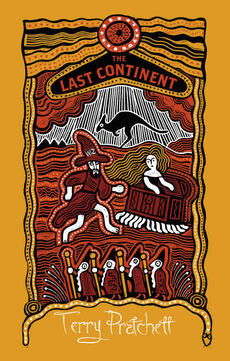 As for suggesting your own book ideas to authors, please don’t. It’s not that they aren’t good ideas, it’s that there are legal implications. Most big-name authors will tell you that at some point they have received letters or emails claiming that the idea for a book was stolen because they (the letter writer) once said or wrote down some of the words that are used in the book. The writer of the letter or email then goes on to try to claim money for suggesting the idea or, even worse, for plagiarism. Terry Pratchett’s agent told me that he received an email threatening legal action from someone who had once suggested, in another email, that Terry Pratchett set one of his books in Australia. The threatening email arrived shortly after the publication of The Last Continent in 2008, where Pratchett sets the story in the country of Fourecks on his imaginary Discworld. Fourecks bore a passing resemblance to the country we call Australia. That was enough for the loony who wrote the email. And that’s why authors would prefer it if you didn’t suggest ideas for books. It’s nothing personal. By the way, if that has given you an idea for making some easy money - forget it! Lawyers are expensive, they are happy to take your case because, win or lose, they will still get paid and proving plagiarism is a very difficult thing to do. If you don't believe me, just ask Sami Okri. So I took my idea that I had pitched to Terry Pratchett’s agent and wrote the book myself. It’s called The Inconvenience Store and is available (here comes the plug) on Amazon. 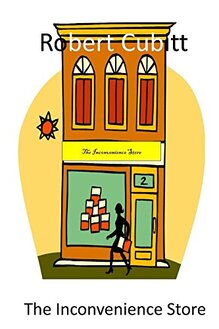 How did I come up with the idea? Easy. I had just been to a convenience store to buy something that they didn’t have on their shelves. When I asked the manager why they didn’t sell it (it was a common enough item) he told me that people often asked for that item, but they didn’t stock it because there was no demand for it. The manager was a totally irony free zone. My response to the manager about his store being more inconvenient than convenient gave me the title for my book and the rest, as they say, is history. So, where is your next book idea coming from? It could be closer than you think. Would you like to be a guest blogger for Selfishgenie Publishing? Just email us and tell us your idea for your blog. The email address can be found on our "Contact" page. If you enjoyed this blog, or found it interesting, be sure not to miss future posts by signing up for our newsletter. We'll even send you a free ebook if you do. Just click the button below.
For the next few weeks we are featuring blogs by guest bloggers on a wide range of subjects related to reading and writing. All the opinions expressed are those of the blogger and are not endorsed by Selfishgenie Publishing. Enjoy! 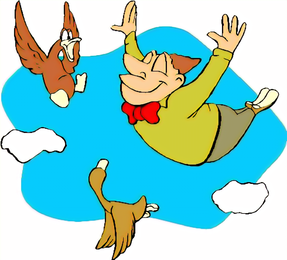 The circus is in town and a wizened little man goes into the big top during rehearsals and approaches the ringmaster. “I’ve got an act and I want to join the circus.” “Ok” says the ring master. “Show me what you’ve got.” So the man goes into the ring and climbs the tent pole all the way to the top. When he gets there he lets go and stretches out his arms and starts to flap them. He then proceeds to fly round the inside of the big top, doing loop the loops and barrel rolls, swooping and soaring, all the time flapping his arms for all he’s worth. After five minutes he settles gently onto the ground in front of the ringmaster once more. “What do you think?” The little man asks. “Is that it? You do bird impressions?” Boom boom. My apologies to the long running TV series M*A*S*H for stealing that joke. But did you laugh at it? If nothing else, it does show you how up to date my TV viewing is these days.  The reason I ask is that comedy in the written word is very hard to do. What one person finds amusing will pass over another person’s head and may be misinterpreted completely. Stand-up comedians spend hours practicing in front of test audiences above pubs and in tiny comedy clubs making sure their material works before they unleash it on their target audience, whether it is in a larger comedy club, at The Edinburgh Fringe or in the 02 arena. A writer doesn’t have that luxury. If he gets it wrong then it could cost him his audience forever. It’s a one-shot deal. The writer may have an editor that may question the suitability of a joke, its comic value, its relevance to the plot and so on. What appeared hilarious when being written in the solitude of the author’s kitchen may fall as flat as a pancake when it reaches the editor’s desk. So what does the writer do? Do they trust to their instinct and go for the laughs, or do they play safe and keep the story serious? Is there room for both? 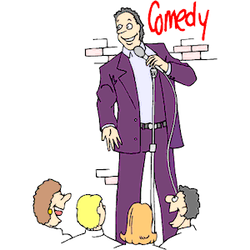 Another problem is that it’s tough to sustain comedy over a long period. A stage comedian works at a rate of two or three laughs a minute. Story telling comedians may string a joke out for three or four minutes before getting to the punchline. So how many jokes does the writer need to put into a story to give it that humorous feel? Is it one per page? One every thousand words? One per chapter? Let’s say it’s the latter. My books generally run out at about 25 chapters. Some have more and some less. At the rate of one significant joke per chapter the sums are easy enough. 25 jokes for a stand-up comedian, therefore, is about ten minutes worth of material. Perhaps half the duration of a comedy club slot. That’s a lot of jokes and every one of them has to hit the mark. Of course, not all the humour in a book has to be in the form of joke. Some of it can be situational. The writer gets a lot of leeway in this area, painting pictures of absurd characters or giving them funny things to do or say. The writer can make his characters do silly things. He can make them stupid to the point of imbecility. He can make them accident prone. He can make them pompous or self-important. But he still has to maintain the humour for over 80,000 words (that’s about the acceptable minimum length for a novel these days). That’s a lot of jokes to have to write. Name one well known writer who is noted mainly for the humour in his novels. Difficult, isn’t it? There are plenty who write short pieces for newspapers and magazines. The now defunct Punch magazine was known for them. But ask them to extend that to a full-blown novel and you would start to see the panic in their eyes. 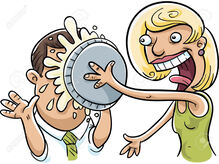 There have been some, of course. Terry Pratchett managed to achieve this in many of his works, but not all of them by any means. The late Keith Waterhouse wrote Billy Liar and I’ve already mentioned M*A*S*H, which made three outings as books for Richard Hooker (real name H. Richard Hornberger). Twelve others in the franchise were ghost written by William E Butterworth and were less critically acclaimed because of it. But when we talk about humorous writing we are often talking about satirical works or parodies, rather than books that are intended solely to be funny. I’ve read a few books recently which, according to their “blurbs” on Amazon, were laugh a minute works. I have to say that they generally failed to make me laugh. The jokes often descended into slapstick and that is a visual media, or it became very juvenile in nature, which is not the sort of comedy that will appeal to an adult reader. More often the jokes were non-existent. So, as someone who likes to introduce a lighter note into my books, that makes me a little bit nervous. What if my readers don’t get the jokes? 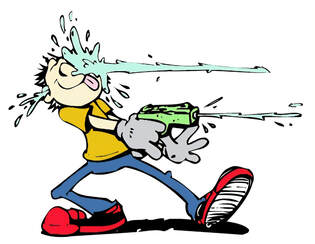 I’ve hedged my bets a bit by not claiming that my books are funny. That way at least I’ll be managing expectations. But that is a double-edged sword. A lot of the time we laugh at jokes because we know they’re jokes and we’re waiting for the punch line. If they were told in a more serious tone of voice with no comedic preamble, would we automatically laugh? Maybe, but maybe not. Like most people I have preferences when it comes to comedy. I laugh at some comedians more readily than I will laugh at others. We all know that humour is a very personal thing, as evidenced by the joke I started with. Some people will have laughed and others won’t. That makes life difficult for an author, because they need to appeal to their entire readership, not just to the few people who will understand their humour. So, humour in a novel is fraught with difficulty, for both the writer and the reader. All I can say is that if you find yourself laughing at my books then the jokes were intended. If you don’t laugh then the book is a serious work of fiction and therefore not the place for me to start telling jokes. Either way I hope you enjoy them. Would you like to be a guest blogger for Selfishgenie? Just email us with your idea for a blog. The address is on our "Contact" page. Did you enjoy this blog, or find it interesting? To be sure of not missing an edition, just sign up to our newsletter. We'll even send you a free eBook for doing it. Just click the button below.
For the next few weeks we are featuring blogs by guest bloggers on a wide range of subjects related to reading and writing. All the opinions expressed are those of the blogger and are not endorsed by Selfishgenie Publishing. Enjoy! 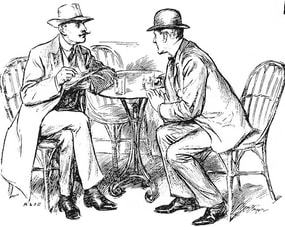 It was one of those conversations that only happen in pubs when drink has been taken. They usually don’t make sense the next day and are quickly forgotten. Well, usually they’re quickly forgotten. The subject was fantasy fiction. You know the sort of thing: wizards, orcs, elves, dragons, enchanted swords etc. My friend said he didn’t read that sort of book because he wasn’t able to suspend his disbelief. I was duty bound to argue against him because… well, because we were in a pub and that’s what blokes do when they’ve had a pint or two. But then, afterwards, I thought about it a little bit more. Why would it not be possible to suspend disbelief and read fantasy fiction? 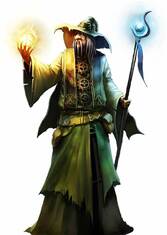 We suspend our disbelief every day of the week over some matter or other, particularly when it comes to the sorts of thing politicians say. So what’s so hard about suspending one’s disbelief over a story that is to be found on the fiction shelves? No one is saying its true (well a few deranged people maybe, but I’m not going to count them). All we fantasy fans are saying is that it’s an escape from the real world and into another. The stories are as valid as they are in any other genre. Indeed, they can be found in genres other than fantasy. They usually take the form of a battle of good against evil, during which quests are undertaken or duties carried out. Honour is high on the agenda, as is bravery, selfless devotion and many other altruistic character traits. Perhaps this is what’s wrong. Perhaps these things are so lacking in our modern world that some people can’t believe that they might exist in any world. There is an old tradition of fantasy fiction, of course, though it isn’t always recognised as such. First, we go all the way back to the Ancient Greeks and Homer’s epic stories in the Iliad and the Odyssey. These may be based on some factual events, but they also contain a lot of fantasy. 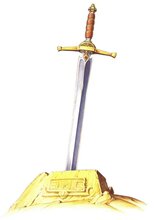 Then we have Arthurian legend. Now, on the surface we have a story about men battling against evil, which forms the core of many a good novel. But we also have a wizard (Merlin), a witch (Morgana), a magical sword in a stone (Excalibur), a mysterious lady in a lake (Viviane or Nimue) and so on. In its basic form it’s no more fantastic than Tolkien. After that we get to the legend of Robin Hood. There is no evidence that he ever existed and what few historical bits of evidence that suggest someone resembling him did exist, don’t portray a picture of the hero of the medieval peasants that robbed from the rich to give to the poor, but a petty criminal who robbed from anyone and kept the loot for himself. OK, more of a legend than a fantasy, but one we buy into. There may be no dragons or orcs, but they’ve been replaced by the Sheriff of Nottingham and his men. We mustn’t forget the Daddy of them all William Shakespeare. In his plays we have a ghost in Hamlet, another one in Macbeth along with three witches, in The Tempest we have a fairy and some sort of troll (Caliban) and of course A Midsummer Night’s Dream which is littered with fairies and in which Bottom is given a pair of donkey’s ears, as though that were normal.  Charles Dickens isn’t averse to using ghosts if it suits his purpose, as he shows in A Christmas Carol, while Bram Stoker gave us Dracula and Mary Shelley provided us with Dr Frankenstein’s hand-built monster. None of these books or plays were aimed specifically at children, which is where my friend thinks the target audience for most fantasy fiction lies. Ghosts, vampires and monsters may be seen as belonging to the horror genre, but they appear in fantasy as well. Now, I’m probably going to upset a few diehard fans here, but I’m going to suggest that the great British Hero James Bond is no more believable as a character than Bilbo Baggins. What is my justification? I hear you ask (I have good hearing). Let’s look at the evidence. Cars that turn into submarines, wristwatches that contain lengths of garrotte wire, cars with ejector seats and so on and so forth. But that’s all boy’s own gadgetry and no more of a fantasy than a sword that glows blue when there are orcs around. At the time when Ian Fleming wrote the stories, the technology for those gadgets didn’t exist, but that didn’t stop him fantasising about them.  But the real fantasy is Bond himself. A suave, debonair killer who’s also a babe magnet and can get into a fight with half a dozen Kung Fu masters and walk away leaving them in a crumpled heap. He’s been shot so many times he must resemble a colander. He’s fallen from trains, planes and ski slopes. While Ian Fleming and the writers who continued the franchise never claimed magical powers for Bond, does this not require just as much suspension of disbelief as it does to read about Gandalf? Bond may not have “One Ring to rule them all (etc)”, but that was because Q never quite got round to finishing it (But just wait for the next movie – you read it here first). 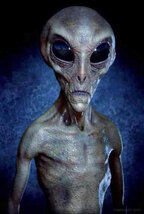 There is, of course, another literary genre that is just as fantastical and requires just as much suspension of disbelief. I mean Sci-Fi. People who will gladly suspend disbelief to accept the premise of strange creatures inhabiting worlds far from our own are sometimes reluctant to do the same for stories containing wizards and dragons. Why? Science does suggest that life may exist on other planets. Indeed, it’s been said that it would be a strange universe if life didn’t exist on other planets. However, science has no idea what form it may take and what its capabilities might be. This is the space that the sci-fi writer inhabits, if you’ll pardon the pun. The space where anything is possible providing the author doesn’t actually ignore the laws of physics. But sci-fi writers do that all the time as well. Time travel, warp speed, sub space, hyperspace, dilithium crystals. Do these sound familiar? Which ones are made up and which does science accept as being possible? No I don’t know either. Dilithium does exist, you can Google it, but can you use it to power a space ship? So, where’s the difference between fantasy and sci-fi? Why is one believable to my friend but the other not? So where do you stand on this issue? Do you read fantasy novels? If not, can you tell me why you don’t? Just comment below. Would you like to be a guest blogger for Selfishgenie? Just email us at our general enquires address, which can be found on our Contact page and tell us what your blog would be about. If you enjoyed this blog, or found it interesting, then be sure not to miss future editions by signing up to our newsletter. We'll even send you a free eBook when you do. Just click the button.
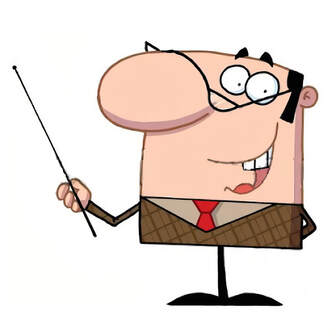 In last week’s blog I featured questions that should never be asked of an author. I received some comments that I was being a trifle sarcastic, harsh even, as people were simply being curious. So, to restore some balance, here are some questions, with my answers, that I don’t mind being asked. I must stress that these are my opinions and other authors may answer these questions differently. When it comes to writing, there are few hard and fast rules, there is only what works for the writer.  1. What is the major challenge for you as an author? Coming up with a fresh approach to a story. Since Homer wrote the Odyssey just about every story there is to tell has been told many times over, so for the modern author there is little they can do except find a new way to tell an old story. There are really only 7 plots for stories, and even then there are similarities and cross overs, so each author has to take one of those seven plots and find a new angle. Perhaps the best modern example is the Harry Potter books by J K Rowling. Stories about wizards are nothing new (Merlin, Gandalf), neither are stories of boarding schools (Billy Bunter, Mallory Towers), but a story about a boarding school for wizards, that was something new. 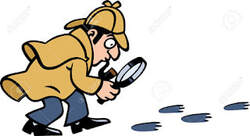 2. How do you work out your plots? The truth is that I don’t really know. I have an idea for a story and then I start to write. What happens is often as much of a surprise for me as it is, I hope, for the reader. Of course, I have a general idea of where the book is going to end up, but not much of an idea of how it will get there. My Magi sci-fi series is essentially a quest. But quests that go straight from A to B aren’t very interesting. Imagine if Frodo Baggins and Sam Gamgee had gone straight from the Shire to Mount Doom, it would have been a pretty dull story and you would never have heard of J R R Tolkein. So they have many adventures along the way and meet many other characters. The same applies in my Magi series. Each of the nine books is a story in its own right before An Kohli, my protagonist, can complete her quest. If she didn’t it wouldn’t be a series of books, it would be just one very short book. Sometimes I will create a situation and not know why. I don’t worry about it at the time, because I can always edit it out if I don’t need it or it doesn’t work, but I often surprise myself there as well. In “The Warriors: The Girl I Left Behind Me” I introduced a character called Sergeant Major Smith, whose negligence leads to the death of a soldier on a rifle range. I didn’t know why I had done it, but it worked as far as it went. Later in the book, however, I wanted to set up another tragedy and found that I had unwittingly created the character who would enable the tragedy to come about. So, my plots often surprise me as much as they surprise everyone else.  3. How do you create your characters? It’s a bit like building a house. I start with the foundations and work my way up to the roof, before decorating and laying the carpets. The first thing I decide is what sort of a character they are. I don’t like wholly good or wholly bad characters, so I tend to think of them in shades of grey. In The Magi I created a character called Den Gau. He is a bit of a coward, but when the chips are down he surprises himself and everyone else by stepping up to the mark. These are the sorts of characters I find interesting and I hope readers do as well. Next I usually write down a physical description: gender, height, build, hair colour, physical appearance, style of dress etc. That gives me a framework on which to hang everything else. In writing sci-fi this can be fun, because I can let my imagination run wild. Then I need to understand what motivates the character. One of the things I dislike about much modern fiction is that the antagonist, the baddy, is usually such a one dimensional figure in terms of their motivation. We are supposed to believe that they are bad just because we are told that they are bad. I don’t believe that people are born bad, so I have to understand what made them that way. To portray all bankers as being greedy, for example, is as shallow as a puddle in the summertime, so I need to know what made my greedy banker so greedy. After that I will start to layer on some character traits, kindness or cruelty, bravery or cowardice, pride or humility. As with motivation, it isn’t one size fits all. These are polar opposites on discrete axes and most people sit somewhere in between, so it is up to me where along these axes each character sits. For my character of An Kohli I have given her a very strong code of ethics, but if she stuck rigidly to them I wouldn’t be able to make some of the plot work, so I have to let her bend her own rules from time to time. But how far can I let her do that before she fails to be believable as an ethical character? Not everything I have described will make it onto the page, but I have to understand it all if I’m to create believable characters and this is especially true if they are recurring characters in a series of books, because readers who follow the series will expect the characters to remain consistent in their behaviour. We would never accept it of James Bond, for example, if he suddenly started to take bribes to walk away. 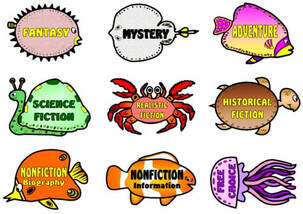 4. Are there any fiction genres you won’t attempt to write? The sorts of books I enjoy writing are the same as I enjoy reading. I’m very much action adventure oriented, so that is what I write. I may locate my stories in outer space, but they are still essentially action adventures. I won’t, therefore, try to write romantic fiction. There is nothing wrong with it as a genre, but I don’t read it and I don’t think I would be good at writing it. The same applies to erotica. Most erotica is actually pretty boring and I’m not sure why it sells so well. For me it sits in the same zone as voyeurism, but without the risk of being arrested for being a peeping tom. I wouldn’t write a western for the simple reason that there is a lot of specialist knowledge required to write it well. Most western fans know their subject inside out and they will spot a faker at a hundred paces. I am a lover of historical fiction but the demands of research for that are considerable. I discovered this when I set out to write a biography of my father’s war service. However, once I had done the research for that, I found I had enough material for a whole series of books set during World War II.  5. How do you go about editing your books? Any mother will tell you that there is no such thing as an ugly baby and writers feel much the same about their books. To go back and try to judge a book for oneself after taking between 3 to 6 months to write it is very difficult, but it must be done. Any author who is struggling to find a publisher is probably struggling because they haven’t been critical enough in their editing. I start with the simple things: typos, spelling, punctuation and grammar. I won’t get everything right even then. You can spot a self-published book from a hundred miles because it will be littered with simple errors that the author failed to spot. The next step is to take each scene of the book and try to assess whether it really works. This is the difficult part, because self-criticism is so hard. Some authors go the other way and slash and burn their manuscripts, practically destroying the book and having to go back and pretty much re-write the whole story. To avoid this, I do an initial critical edit of each chapter after I complete it, so I’m not wasting lots of time. There are two critical elements I try to eradicate. The first is “show vs tell”. Think of this as the difference between watching a football match live and listening to a match summary from Chris Kamara. In “show” the author paints a picture of what is happening within the story, so that the reader can visualise it. But with “tell” the author is merely presenting a report of what happened. It is the most common criticism levelled against first time authors and again, self-published authors suffer the most from the affliction. "it is essential to get an independent person to read the book " My final edit is always of dialogue. I try to write conversations the way people actually speak, because that is going to be the most authentic, so it is important to play those conversations back in my head, to make sure I have achieved that goal. I sometimes find that I have gone off on long lectures, which isn’t something that is allowed to happen in real life because the listener usually interrupts or falls asleep. There is an exception to that. My Carter’s Commando novels often feature military briefings and these provide a way of providing a lot of background material behind the historical context of the story I am telling. However, real life briefings rarely contain so much detail. They focus more on what is going to happen, rather than what has gone before. After that the manuscript goes off to my publisher for more editing. That is much more revealing as it is a fresh pair of eyes that is interpreting what has been written. So, if someone can’t take criticism, it’s best for them not to become a writer. If you want to self-publish then it is essential to get an independent person (or better still – people) to read the book and provide honest feedback before publication. Friends and family aren’t a good choice, because they want to be kind, which is no help at all.  6. What do you think about bad reviews? If you can’t take criticism, then it’s best not to read reviews because they aren’t all going to be good. And our friends the internet trolls aren’t above leaving terrible reviews for books they have never read. Not everyone will enjoy a book and if someone doesn’t enjoy it then their opinion is as valid as those that did enjoy it. Some bad reviews can be very helpful. If several people are saying the same thing it is worth paying attention and trying to fix the problem. The worst reviews are those that don’t tell the author anything. Saying “I hated this book” isn’t helpful, but saying “I hated this book because….” can be. If you are a reader and you enjoy a book, please do submit a review. Sharing your pleasure helps the author. It doesn’t have to be fancy; a simple “I enjoyed this book” is as good as a 500 word essay. If you enjoy the food at a particular restaurant you tell your friends, don’t you? So why not tell your friends about books you have enjoyed?  7. What advice would you give someone who wants to become an author? Don’t do it for the money. You are likely to end up poor. Hundreds of thousands of footballers play in the amateur leagues, but only a couple of hundred footballers get paid thousands of pounds a week to play in the Premier League. The same applies to authors. About 99% of authors, even those published by the big publishing houses, earn less than the national average wage. Each year a couple of new names hit the big time, but they are a tiny fraction of the total number of people who write books. So if you love writing by all means become a writer, but do it for the love of it. Anything else is a bonus. Secondly, don’t assume that because people say nice things about your books it means you are a good writer. Friends and family don’t want to hurt your feelings, so they say nice things. The only real way to find out if you are talented is to get your books read by strangers. They will tell you the truth, and sometimes the truth hurts.  There are a lot of sharks in the publishing world trying to make money off the backs of authors, so: (1) Don’t pay publishers to publish you; they are supposed to pay you from your sales. (2) Don’t pay people to publicise your book. If your publisher isn’t doing that for you, what is he (or she) doing to earn their share of the income? Especially don’t pay those people who just Tweet your book title. They don’t produce sales. (3) There are some things worth paying for: (a) a professional critique of your work and (b) a good cover design, but look for references before committing yourself. Finally, just because your books don’t sell it doesn’t mean that your books aren’t good. Publishing is a very crowded marketplace, well over a million new books are published every year. It takes a lot to get noticed and some people never will be, no matter how good their books are. So, once again, do it for the love of it. If you have enjoyed this blog, ot found it informative, be sure not to miss any future posts by signing up for our newsletter. you can even get a FREE ebook just for doing it. Click the button below to find out how. |
AuthorThis blog is compiled and curated by the Selfishgenie publishing team. Archives
June 2025
|
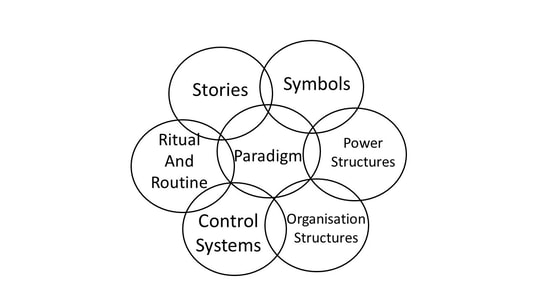
 RSS Feed
RSS Feed